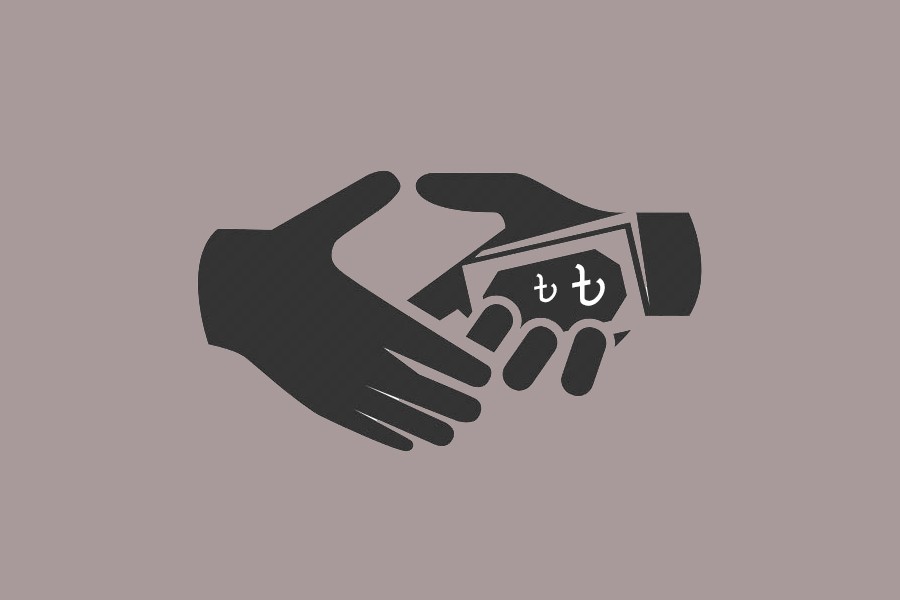
Published :
Updated :

It is very easy for any sensible person aware of the affairs in Bangladesh to get confused about the attitude of the people in power of the country towards corruption. The message of pursuing a 'zero-tolerance policy' on corruption gets wide publicity, but the ground reality does not match this avowed intention. Rather it suggests that the social ill is getting more widespread with every passing day in defiance of the authorities. So the question arises if the authorities mean what they say. If they did, corruption could not spread its roots so widely.
Lately, a barrage of corruption allegations against some highly-placed public servants has been a subject of public deliberations, overshadowing many other burning issues. Media reports reveal that some public servants amassed wealth worth thousands times their legal income. The irregularities by some officials were not confined to bribery; they exploited every chance they got to be involved in any form of irregularities. That a few of them flew abroad secretly with their families to avoid facing interrogation by the national anti-corruption agency corroborates the allegation. This abysmal situation prevails despite the government's 'zero tolerance' to corruption. Mere rhetoric would serve none, there is need for targeted action so that it acts as an effective deterrent to corruption.
About the suspected corrupt big shots, ruling party leaders are saying the law will take its own course in dealing with them and which is why they have started facing the music. It is not easy to keep trust in such statements. Why? These influential public servants were enjoying the highest preference and privilege from the government until they grabbed headlines. Who will believe the government high-ups, different agencies designated to find out and combat corruption, were completely clueless about their corruption? If they were really in the dark about their corruption, how the state organs are functioning. We have not heard that anyone from the departments concerned was held responsible or punished for their failure to report on corruption committed by the big shots.
Anyway, it is good to see corrupt suspects are facing a public humiliation. They cannot stay at the palatial houses they constructed, ride on the most luxurious cars they bought, indulge in angling in leisure at the artificial lakes they built, or even pray at the mosques they constructed with the ill-gotten money.
Let there be a social campaign to combat corruption. Why do we need to combat corruption? Because it has numerous negative impacts on society, the economy and the state. Corruption increases income inequality and poverty, promotes discriminatory asset ownership, infringes rights of service seekers, damages morale of service providers, lowers social spending and most importantly discourages investment and slows economic growth. Just three months ago, a US government report identified bribery and corruption as the main obstacles the world's top economy is facing in promoting business in Bangladesh.
Anyway, enough is enough. The government now needs to mean what it says about corruption as the country can no longer afford such widespread malpractice. Mere lip service against the ill will be of no use. It must give a clear message to society that no one will be allowed to get off scot-free if found involved in corruption.


 For all latest news, follow The Financial Express Google News channel.
For all latest news, follow The Financial Express Google News channel.